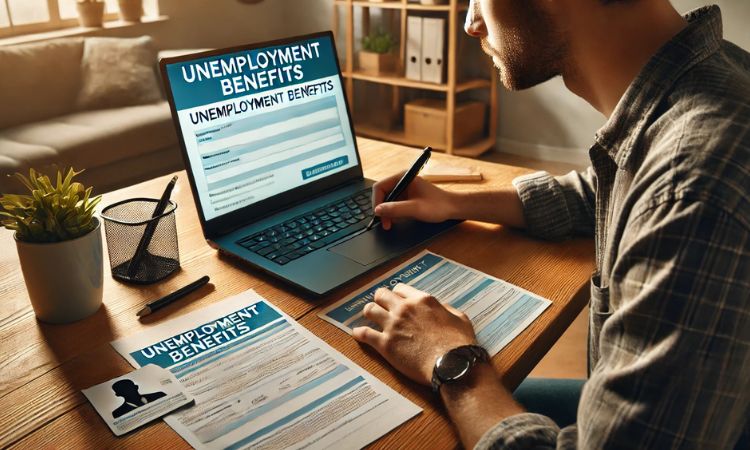Losing a job can be tough in every way. It shatters confidence and brings in feelings of shame, guilt, and anger. Additionally, job loss ushers in a period of financial uncertainty. If you’re facing this situation, you may be wondering what to do when you lose your job to stay financially stable and secure your future.
It’s quite likely that your spouse or parents have a stable income, which might ease some money-related worries. Maybe you’re one of those few fortunate Americans with an emergency fund, allowing you to maintain your lifestyle. Or perhaps you have attained financial freedom and can live without stress about money.
However, even if you’ve an emergency fund or financial freedom, you’ll still have to take certain steps to ensure the financial security, in the unfortunate event of losing employment.
Before proceeding, let’s get one fact clear: even if you lose a job, it’s not the proverbial end of the world. You could always apply for other, better jobs or launch your own business.
Alternatively, you might be able to work as a freelancer should you possess the skills for such online work. There’re also side gigs that you could work on and still make enough money daily.
At the same time, there’re certain things you should do in the event of losing a job. In this article, I will discuss these steps, crucial to ensuring your financial stability and a good lifestyle during periods of unemployment. Understanding what to do when you lose your job can help you take control of your finances and move forward with confidence.
Table of Contents
Impact of Losing Job
The first and most obvious impact of losing a job is bidding adieu to a stable and sure source of income. This loss of income shakes us badly to the extent that we could be traumatized. More so when there’s loads of debt and less money in hand.
The second impact is panic, caused by loss of income. It means you’ve to depend on savings if any and might have to borrow money to make ends meet or even pay debt such as mortgages and credit card dues.
The third impact is fear. As a matter of fact, fear could drive you to make irrational money decisions. These decisions could actually cause losses instead of driving the money towards intended profits.
Add to these, guilt over losing the job and justifying the same before family and shame at being unable to provide for household needs, albeit for a short period.
An unhealthy blend of all these factors often hurts finances when you lose a job. The objective of this article is therefore to prevent getting into financial doldrums when you lose a job. Knowing what to do when you lose your job can help you handle these emotional and financial challenges effectively.
What to Do When You Lose Your Job: Key Steps to Stay Stable
So, let’s look at some of the things you should do immediately upon losing job. Doing these things immediately when you lose a job could help you maintain financial stability, prevent getting into debt, and also help wriggle out of a nasty situation.
These steps are simple and can be taken easily over a reasonable number of days. Since there’s no job, you needn’t rush with these steps. Following these steps will give you a clear plan on what to do when you lose your job.
File for Unemployment Benefits

Apply for a slew of unemployment benefits immediately when you lose a job. These include unemployment insurance where eligible. This insurance provides some money if you’ve lost the job for none of your faults.
Other unemployment benefits include:
- Disability Assistance: If you’re ill or can’t work due to sickness or disabilities.
- Workers Compensation: Paid to employees that get injured while on duty or due to the nature of the work.
- TANF: Or Temporary Assistance for Needy Families is a federal program that provides some financial assistance to low-income families and the unemployed.
- Medicaid and Medicare: Provides healthcare services to low-income families and the unemployed.
- Disaster Unemployment Assistance: This is very common across the USA nowadays and provides financial assistance to Americans who’ve lost jobs in any disasters such as wildfires.
Other than these, there’re also programs for veterans of the US armed forces and several community and state-run programs for individuals who lose a job. Therefore, look for such programs that’re suitable for you to get some money during the unemployment period.
Also Read:
- Best Website Testing Jobs with 15 User Testing Websites
- Careers in Commercial Banking | Entry- Level Jobs in Commercial Banking
Use Food Pantries & Food Banks

Americans spend an average of 11.9 percent of their income on food. While this might sound very reasonable when you have a job, things become different if you’re unemployed. That’s because American households throw away at least 35 percent of all food. This directly translates as the money you paid for food ends up in the trashcan.
One of the things you could do is plan meals and prevent food wastage. Secondly, you can get free food from food pantries and food banks in your area. That helps save considerable money for your kitty.
There’re food banks in almost every city or place in the USA and hence, finding one nearby is easy. Using food pantries is a smart way to manage expenses when figuring out what to do when you lose your job.
Draw a Budget

Yes, a budget can help curb unwanted expenses, if you follow one strictly. Make a budget that’s realistic and workable. Inform all family members that the household would now be running on hairline budgets because of your joblessness.
Budgeting doesn’t mean stopping expenses. It simply means streamlining your expenses to make every dollar count. By budgeting, you’ll ensure that all expenses remain in check and some spending also could get curbed or even eliminated over a few days. Drawing a budget is one of the first steps in knowing what to do when you lose your job.
Rework Loans to Manage Credit Score

One of the crucial parts of being jobless is managing credit. Americans have credit or debt in the form of mortgages, credit card dues, sometimes vehicle mortgages, and personal loans, to name a few.
Unless these are serviced and paid on time, you could severely damage an otherwise very healthy credit score. One of the reasons people damage their credit score is due to wrong decisions taken when jobless.
Once you’ve a complete picture of cash on hand, approach lenders and have repayments rescheduled or reworked to affordable levels. Being jobless isn’t really an excuse to skip repaying on credit cards or home mortgages, among other debts.
Restructuring them can help avoid any damage to your credit score and save you from legal wrangles that could arise from debt default. Reworking loans is crucial when considering what to do when you lose your job.
Find Income Sources

Being jobless gives you an additional eight hours a day. You’ll be doing nothing during the eight hours that would otherwise be spent at work. Instead of brooding over things and feeling depressed, use these eight hours wisely by trying to earn an income. There’re several ways you could make money during these eight hours and in your spare time too.
The best way to make money despite joblessness is by working as a freelancer. Almost 51 percent of America’s working population freelances either full-time or part-time. Freelancing in most cases, pays more than regular office jobs.
Learn about the demand for your skills in the online freelance market and put them to use. Also, you could look for side gigs through various platforms and earn a decent income when jobless. Exploring freelancing and side gigs is a key part of knowing what to do when you lose your job.
Advantages of These Steps
Taking these steps immediately has various benefits for you, in the event of losing a job. Firstly, they could assure you of some money during periods of unemployment. The cash might not be as much as you might want, but it could help defray the additional stress on savings or even become a source of living.
Another advantage is that freelancing and side gigs could help compensate for any lost income and also, keep you in good shape physically and mentally. Research proves that persons who keep busy and earn despite losing a job, maintain better overall physical and mental health than their working counterparts.
Understanding what to do when you lose your job can help you stay financially and emotionally stable during difficult times. Earning from side gigs and freelancing also takes away any shame, guilt, and fears associated with unemployment. Exploring freelancing and side gigs is a key part of knowing what to do when you lose your job.
Wrap Up
You don’t need to indulge in any drastic measures if you lose your job. Remember, it’s a common occurrence worldwide and you’re not the only one on this planet facing such an unpleasant predicament. Usually, job losses are temporary and you can find one easily.
However, these ways to earn extra income and curb money losses can be utilized even when your finances return to normal. By knowing what to do when you lose your job, you can take control of your situation and secure your future.

Ashwin (Win) Honawar is an accomplished journalist and poignant author with 33 years of experience. He is renowned for his daredevil journalism and engaging narratives that explore various facts of human life and the resilience of the human spirit.






